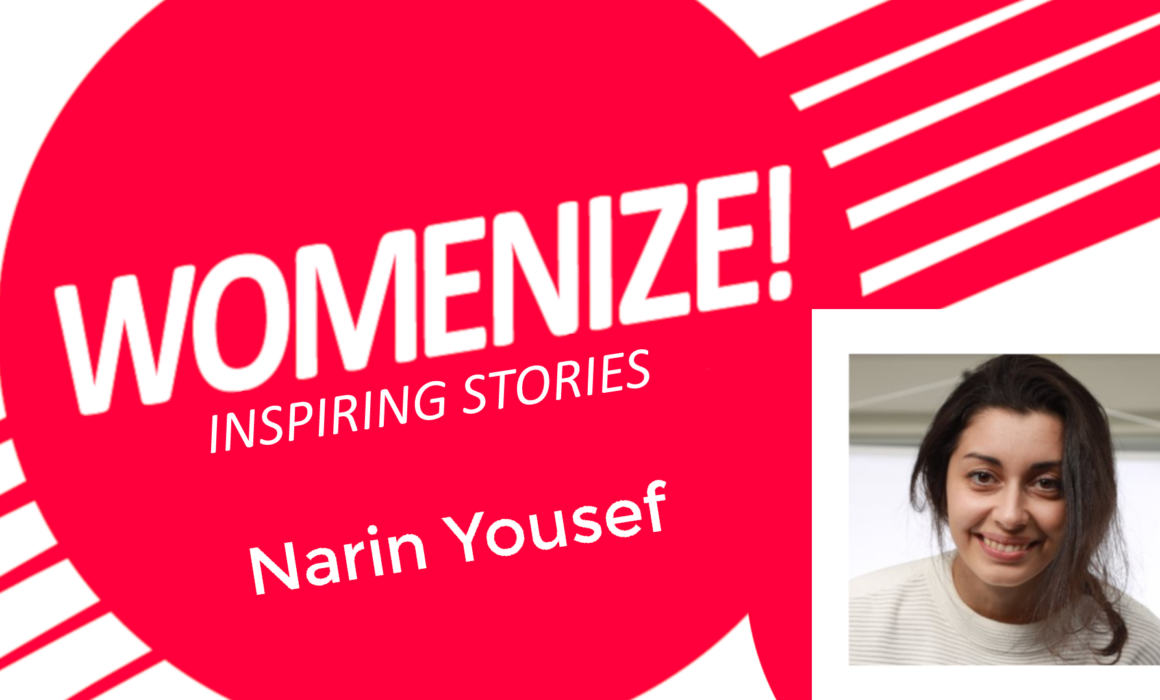Narin Yousef – Womenize! – Inspiring Stories
Womenize! – Inspiring Stories is our weekly series featuring inspirational women from games and tech. For this edition we talked to Narin Yousef, Co-Founder & Game Designer at Aftnareld. She speaks about transitioning from a Laboratory Technician to Co-Founder & Game Designer and highlights the impact she hopes their games will have on fostering connections and empathy. Read more about Narin in this interview:
Hi Narin! Transitioning from a Laboratory Technician to a Co-Founder & Game Designer is quite a shift. Do you see an intersection of science and art in game design, and how has this unique blend of skills contributed to the distinctiveness of Aftnareld’s game projects?
There is definitely some intersection! Chemistry and other forms of science can definitely need a type of creativity to figure out new solutions and methods. But what I mostly took with me from that world into my game design work is the methodical and structured way of working. Through my studies and the laboratory work I’ve learned to be meticulous and organised, and I think our Game Design Doc and other design sheets reflect that. The same analysing mindset I used for working at the lab sets in while designing as well, as I like to think through all possibilities I can think of before deciding upon a certain design choice. It may have led to a bit of a slower development time for us, but it’s been an important learning curve for us to experiment with different ideas and angels, also test our game with other people early and a lot, to find and polish the unique and fun parts of our game.
With your interest in world-building and connecting with people, how do you envision the impact of your games on a broader scale, and what role does storytelling play in creating meaningful connections with your audience?
My biggest hope with our games is that we create something that brings people closer to each other. Both in terms of personal connections, as I believe that when people spend more time doing something fun together, they have opportunities to bond and build memories with the person or people they play with. But I also hope we can encourage, through our story and world-building, people to be a bit more empathetic towards each other in both the gaming sphere but also in society as a whole. Don’t get me wrong, I like to do a bit of competitive gaming sometimes, but I feel that if people took time to play more purely cooperative games, maybe we could have a bit of a less toxic gaming environment, and learn to be a bit more encouraging and kind to each other.
Having met Valle, your co-founder, during your studies at Linköping University, how did that collaboration shape your perspective on game development, and what key lessons did you learn from working on projects together??
Before meeting Valle, I felt like video game development was a bit like magic. I had no idea how to actually make games and I had never been “exposed” to it before. Valle already had game development as a hobby, and the more he showed me, the more intrigued I was and wanted to join in. Although we both saw it as a hobby and fun project just for ourselves at first, it grew on us more and more. Valle was the one who introduced me, but then I started pushing us to actually start a company and aim for making commercial games. I think that learning how to balance being kind and supportive of each other (and the other people we work with), with giving negative feedback/critique has been a very important part of us sticking together. We’ve also realised how valuable it has been to be a part of a community, the one that we have here in Linköping called East Sweden Game has always been a great place for both help with both business and game development, but also for well-needed social breaks. Especially when being a small studio, I think being open and making connections and collaborations with all kinds of people can help you a lot along the way!
Thanks for this interview, Narin!
Narin’s links: LinkedIn
Womenize! – Inspiring Stories Feature by Madeleine Egger

